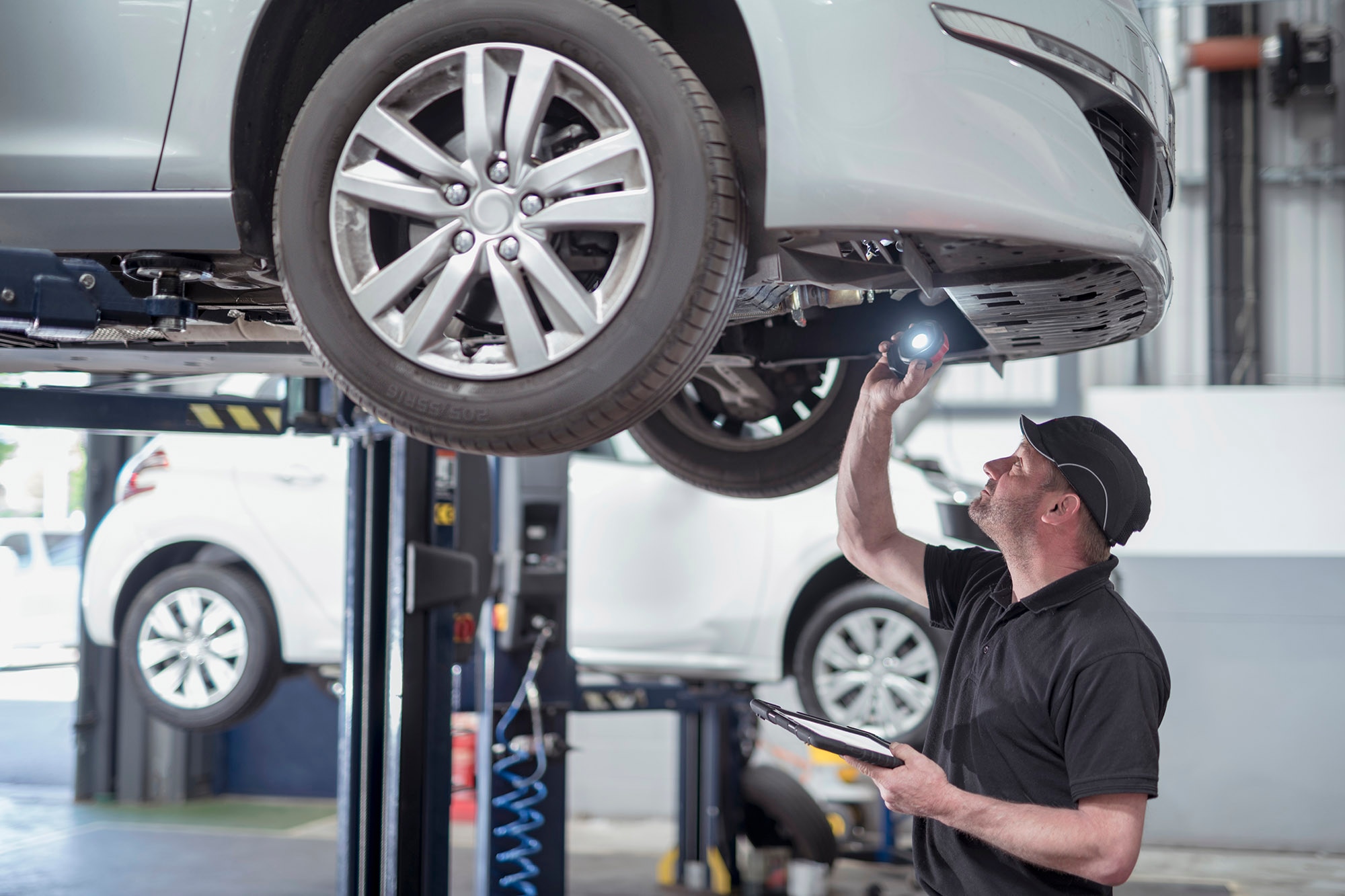Is a Car Dealer Service Department Obligated to Use OEM Parts?
Original manufacturer parts are not always a given when the dealership does repairs.
 Getty Images
Getty Images
When visiting a dealer for service, you may have been surprised to be asked whether you want their technicians to use OEM or aftermarket parts.
For many car owners, it seems natural that a dealership would be required to use factory original components. However, the answer to that question is surprisingly complex and often depends on the details of your specific repair work.
OEM vs. Aftermarket Parts
OEM is an acronym for original equipment manufacturer. When discussing automotive parts, that translates into components that come from the company that built the vehicle.
The term OEM can apply to both parts that came on the vehicle from the factory and replacement parts used during scheduled service or when making repairs.
It's important to note that OEM parts aren't necessarily produced by the company whose badge is on the front of the car. Often, separate companies — known as suppliers — are contracted to design and fabricate parts used on the assembly line.
In contrast, an aftermarket part is designed and built by a third-party company. These parts can range from things as basic as starters, alternators, or wheels to high-performance components such as turbochargers.
Aftermarket Parts Can Be Equivalent to OEM
To complicate matters, in many cases, OEM components are also sold on the aftermarket under different brand names but at less expensive prices.
This practice is similar to how store-brand products in grocery stores are often manufactured by their name-brand competitors.
If a dealer chooses to install an aftermarket part, it's likely that this component is either identical to the OEM part or is considered to be the equivalent in terms of quality. In some cases, those parts might even offer better performance than the OEM version.
Since dealers generally provide a warranty with their work, they'll have to manage the warranty of the parts they install. Any warranty on non-OEM parts will not be covered by the carmaker but by the aftermarket company.
Warranties for aftermarket components vary to a great degree, so if dealers do choose cheaper aftermarket parts to use in a repair, it's in their best interest to make sure they won't be burning a customer relationship in the process.
Dealers Don't Have to Use OEM Parts to Make Repairs
Many people assume that by heading to a dealership instead of an independent repair shop, they will be guaranteed the use of OEM parts in their automobile. The reality is quite different.
OEM parts are often more expensive than aftermarket parts. This extra cost can be a factor when a dealership is calculating the price of a repair — especially if it's being paid for by an insurance company, which will often push for the use of the cheapest components. In some cases, this might even result in salvaged or recycled parts being installed.
There is no specific rule requiring a dealer to use OEM parts when working on your vehicle, but some car companies actively discourage the use of aftermarket or salvage parts due to liability and quality concerns, especially regarding structural components. This is despite the fact that OEM parts are not always a guarantee of better quality.
Aftermarket Parts Don't Automatically Void a Car's Warranty
Thanks to the Magnuson Moss Act, the use of aftermarket parts in a vehicle repair, or even modification, does not automatically void a vehicle's existing warranty. It's up to the automaker to prove that a specific component led to the failure that is being claimed under warranty in order to deny that claim.
Written by humans.
Edited by humans.
 Benjamin Hunting
Benjamin HuntingNearly two decades into his career as an automotive journalist, Benjamin has had his hands greasy, his hair blown back, and his heart broken by more than one project car. In addition to his work at Capital One, he has contributed features and reviews to Motor Trend, Car and Driver, Hagerty, Driving Line, Inside Hook, Super Street, European Car, Roadkill Magazine, Motor 1, The Drive, the Toronto Star, the National Post, Business Insider, NAPA, Autoblog, Automotive News Canada, and AutoGuide. He is also cohost of the Unnamed Automotive Podcast and cocreator of the Code 45 and Dead Air graphic novels. In his spare time, he's a friend to vinyl and enjoys keeping the shiny side up during track days.
Related articles
View more related articles